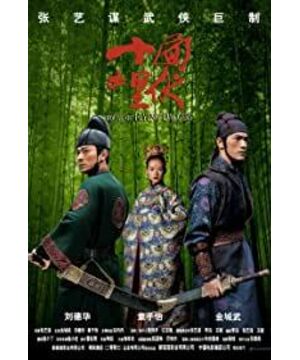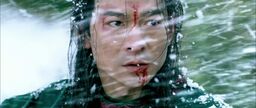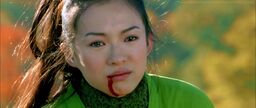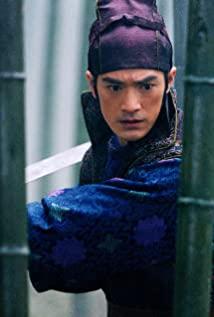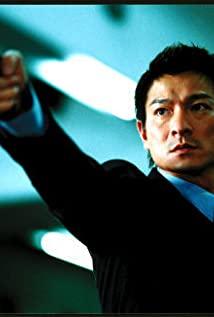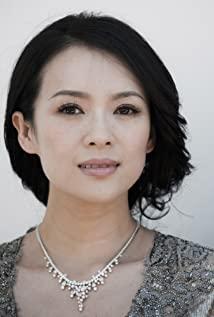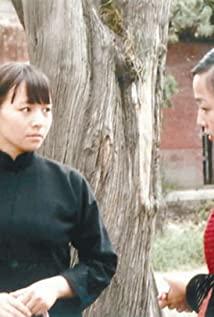Zhang Yimou: "My purpose is only one: to make the Chinese people understand what I shoot. I have two tricks: first, to go deep into the subtle emotional world between people; second, to maintain my own personality , to achieve 'no one has me, but everyone has my special'."
Audience: "House of Flying Daggers" is said to be a love tragedy, how come I'm not touched at all after watching it? Audience: ("House of Flying Daggers") not only imitated the battle of the bamboo forest in "Crouching Tiger, Hidden Dragon", but also imitated "Infernal Affairs". Asking foreigners to sing the theme song also felt a bit competitive with the blockbuster "Titanic".
Zhang Yimou: "If you want to popularize, you must also improve. As a director, you just blindly cater to the market. Over time, the cultural connotation of the film will be weakened."
Audience: Laomouzi has found the secret of catering to the commercial market operation, but art The level is lower than before.
Zhang Yimou: "Mainland Chinese films have adhered to the consistent humanistic personality for many years, and the audience also has this desire. We should not underestimate the common people."
Audience: The pictures of "Heroes" and "House of Flying Daggers" are good-looking, but it is too underestimated to make up such a story. our intelligence.
Talent: imitation and trickery?
Director Zhang was a smart man from the very beginning, not because of the commercial intentions of the early film "Red Sorghum", but the most direct and pure image style and story structure he provided in "Red Sorghum", which could conquer the West. audience, which in turn affects the Chinese audience. The art, costumes, props, music, etc. shown in the movie can be achieved to the extreme under the strong director consciousness (so, it is very similar to a movie) is the foundation of his skills, so his talent is very eye-catching in his movies. , At the same time, those unknown actors have also succeeded one by one. What he did not expect was that non-film school audiences could find Director Zhang's teacher at the feast of pirated discs, and the voices questioning Zhang Yimei's film art have never been interrupted. "Red Sorghum" is inspired by an early Japanese business card "Reeds": During World War II, in an inn in the reeds, there were only two lonely and desperate mothers and daughters. They had sex with men who came back from the front line and then killed them Death is thrown into the reeds, and the large reeds in the emotional rendering place are too much like the red sorghum fluttering in the wind in the drumbeat; the unstable scene of "Something to Say" is a fanciful imitation of Oliver Stone's "Born to Kill". Crazy”; after watching Iranian director Abbas’s “The Lover under the Olive Tree”, I know where the originator of the non-professional actor and the imitation documentary film “No One Can Be Missed”, the difference of the latter is that it wants to create a similar Spring Festival Gala As for "My Father and Mother", he may think that the Scottish bagpipes of "Titanic" were copied from him, but it's a pity that they were rushing to release it early; "Dragon" actually uses the same Tan Dunpai music, the difference is that it made Director Zhang not even show a face at the Oscars, let alone talk about any awards; and it is predicted that the box office will surpass that of "Hero". The plagiarized object of "House of Flying Daggers" actually identified his own work - "Hero"! I don't know if I'm stupid or the audience is stupid.
Now that the story is set aside or minimized, directors always have something to focus on. Stripping stories, or the normal narrative of anti-movie, was played by masters during the French New Wave period. They talked more about human nature, human living conditions or image styles with significance of the times. Director Zhang’s professional identity and talent in photography are destined to be His contribution to the tension of color, light and composition in Chinese film images. But a movie is not entirely for eyeball explosions, and it can provide something after the camera binge. And all the big-name actors in "Hero" have no plot motivation, so the dialogue can only become "pale"; "Red Sorghum" left the impression of Westerners only "Wild"; "My Father and Mother" is just "Little Gong Li" "Zhang Ziyi's personal album; and "House of Flying Daggers" has become a talent show for the three actors...
Operation: "China's top planner"?
From the Western judges to the Chinese market, it is a business chain created by Zhang Daoqun. Regardless of our guesses or not, what Director Zhang offers to Western audiences is indeed Chinese-style stuff. When Director Zhang's name became a brand, every new film accompanied by every wonderful sales plan was invincible.
Director Zhang is definitely a person who keeps pace with the times. Because the times change faster than the plan, so his film style needs to be changed, and his value orientation is also shifting. If in the 21st century, we still express the discussion of the Chinese philosophy of life in "To Live", it will definitely be crazy. On reflection, it must be good and crazy. That's why there will be an actor draft for "Happy Times", there will be the scandal hype of "My Father and Mother", only then will there be "Heroes" to see the film and show their ID cards, and then there will be the unprecedented global premiere of "House of Flying Daggers". movie. From a commercial point of view, all Chinese filmmakers have to be amazed and ashamed. The marketing and promotion plan of the later film and the huge box office brought by it are enough to make it appear on the homepage of "China's Top Planning".
I remember Director Zhang said in the opening ceremony of "House of Flying Daggers" that "I hope everyone supports Chinese films". If this is just a language package, we will give it a smile, and if he really thinks it will be a big laugh. How can Chinese movies be represented and driven by "House of Flying Daggers"? We must know how many talented directors on both sides of the strait are making classics of Chinese movies with sincerity. However, the commercial operation model of his works is something that other Chinese films that have not been commercialized have to learn.
And Zhang's so-called commercial films are actually just as elementary as China's primary stage of commodity economy, because his works only satisfy people's one-time consumption problem, and there is no art after that. Some Western commercial blockbusters such as "Schindler's List" and "Forrest Gump" clearly tell us that business and art are not decisively opposed, which means that the director's heartbeat is not so strong when counting money.
Transformation: Commercialism or Chinese Blockbuster Complex?
As an educated youth, Director Zhang had the same sense of historical mission and supreme heroism as all the literary and artistic youths at that time. It seemed natural to worry about the turmoil in China and the Chinese people. However, the change from such a critique and attention to cultural reality to the current love of martial arts adult fairy tales shows a disfigured face change from the sublime to the anti-sublime.
With the full impact of China's market economy, Director Zhang has slid from an early period of profound significance to a meaningless commercial film. Taking "My Father and Mother" as a watershed, the subsequent "Happy Times" was purely based on the weak "true love in the world", and created a "big product" of Zhao Benshan from beginning to end; and "Heroes" and the like are even more fanciful To express the enthusiasm for the box office, it is not because the martial arts films themselves have entertainment elements, but because in Chinese martial arts films, apart from Hu Jinquan, Tsui Hark, and the like are worthy sects (Wong Kar-wai's "Evil in the East" says separately), the others are nothing more than The role of gangster, Director Zhang's work is obviously in the gangster.
Recently, Zhang Yimou was interviewed by Phoenix Satellite TV, and he positioned "Heroes" and "House of Flying Daggers" as "domestic blockbusters". The implication is that it is obviously weak to use the art films that have won awards in the past to fight the commercial invasion of overseas blockbusters. , it is difficult for small productions to win big box office in China, and his future creations will still be complex with "domestic blockbusters", which is the change he seeks in his artistic style.
The change of art is not terrible, but the change is the embodiment of an artist's talent. But looking for Director Zhang's artistic trajectory, stepping on N shoes will be in vain, and there are countless faults. This may not be a problem of artistic style or artistic proposition, but may be related to values.
View more about House of Flying Daggers reviews


